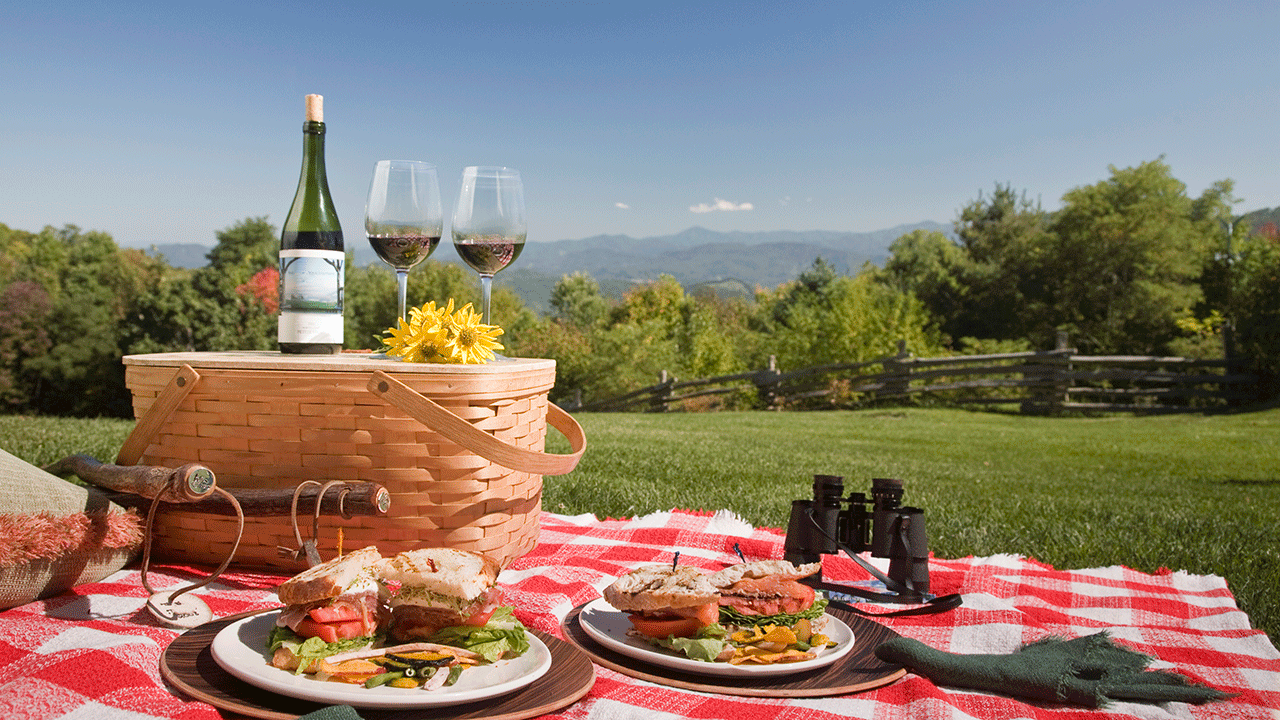Arizona man goes viral cooking food in hot car
Arizona TikToker Joe Brown shares with ‘Fox & Friends’ his viral cooking skills using the Arizona heat to cook from his car.
The weather is warmer, the days are longer — and a lot of people spend more time eating outdoors with family and friends.
But in warmer weather, rates of foodborne illnesses rise.
To that point, each year in the U.S., some 48 million people get sick, 128,000 people are hospitalized and 3,000 people die from foodborne illness, according to the Centers for Disease Control and Prevention (CDC).
HAMBURGER VS. HOT DOG: WHICH IS HEALTHIER FOR YOU? EXPERTS CHIME IN
"Remember, foodborne illness does not take a summer vacation," Jesus Garcia, spokesperson for the USDA Food Safety and Inspection Service, told Fox News Digital.
As you enjoy backyard BBQs, family cookouts and picnics in the park, there are some precautions to take to ensure you’re protected against foodborne illness.

Knowing in advance what you will be serving outdoors and how it’s being prepared is highly recommended. (iStock)
Having a game plan is a good starting point, Garcia said.
Knowing in advance what you will be serving and how it’s being prepared is recommended. "Decide what to eat, how it will be cooked, and what equipment you’ll need," noted Garcia.
Here are eight ways to reduce the chances of foodborne illness this summer.
1. Know food safety guidelines
When eating outdoors, the first thing to know is that perishable food should be kept at 40 degrees F or colder.
Food shouldn’t be left out for more than two hours.
Also, Garcia recommended following the "two-hour" rule — which means food shouldn’t be left out more than two hours.
WEDDING MISHAP AS COUPLE FORCED TO ORDER FISH-AND-CHIP DINNERS FOR 110 GUESTS AFTER CATERER BAIL
The "danger zone," Garcia indicated, is the temperature range between 40 degrees F and 140 degrees F, in which bacteria can grow rapidly.

Before cooking or handling food, wash your hands with clean water, lather with soap and rinse off thoroughly. (mages)
"To keep food out of this zone, be sure to keep food cold enough, at or below 40 degrees F, and hot food at or above 140 degrees F," he said.
2. Wash hands properly
Before cooking or handling food, wash your hands with clean water, lather with soap and rinse hands thoroughly.
If no running water is available, use hand sanitizer or moist towelettes that contain at least 60 % alcohol.
3. Use a food thermometer
Instead of relying on visible cues like color or texture changes while cooking, or the amount of time something’s been on the grill, a food thermometer is the proper thing to use.
"Visible indicators aren’t safe methods," said Garcia.
"The only way to be sure that food is safe is to use a food thermometer."

To be safe, cook raw beef, pork, lamb and veal steaks, chops and roasts to 145 degrees F, according to the CDC. (iStock)
To be safe, cook raw beef, pork, lamb and veal steaks, chops and roasts to 145 degrees F, according to the CDC.
Also, cook fish and shellfish to 145 degrees F; cook raw ground beef, pork, lamb and veal to 160 degrees F; cook egg dishes to 160 degrees F; and cook raw poultry to 165 degrees.
4. Pack perishables correctly
If you’re traveling to spots like the beach, a park or a cookout, be sure to pack your perishables in cold carriers or insulated coolers.
THE 10 BEST COOLERS FOR KEEPING YOUR DRINKS COLD THIS SUMMER
Pack food in with ice, gel packs or frozen beverages.
5. Be aware of flying pests; cover your food
Not only are these pests annoying — they can present danger.
"Be aware that flies and other flying insects can cross-contaminate foods, so it's best to cover foods when possible to prevent cross-contamination," said Donald W. Schaffner, PhD.

"Be aware that flies and other flying insects can cross-contaminate foods, so it's best to cover foods when possible to prevent cross-contamination." (iStock)
He's a distinguished professor and extension specialist and chair, Department of Food Science, at Rutgers University in New Brunswick, New Jersey.
"This can even be a problem for non-perishable foods like chips."
6. Practice grilling smarts
When grilling, be sure to watch out for cross-contamination from meat, poultry and seafood to other food items being served.
Remove dishes contaminated with raw meat juices promptly.
And, when you’re finished with food prep, be sure to thoroughly wash food prep areas and food storage containers such as coolers, utensils and cutting boards.
SPICY GRILLED SHRIMP AND OLIVE SKEWERS DINNER: TRY THE RECIPE
When bringing raw foods like chicken or burgers out to the grill, remove dishes contaminated with raw meat juices promptly, cautioned Schaffner.

When you’re finished with food prep, be sure to thoroughly wash food prep areas and food storage containers such as coolers, utensils and cutting boards. (iStock)
"And never use these dishes to hold cooked foods. Bacteria in raw meat juices can cross-contaminate cooked foods," he added.
7. Understand shade won’t apply to food
An awning on your deck or a tent in the yard won’t provide more time for food to be left out.
"Don't leave perishable foods out all day," said Schaffner.
For more Lifestyle articles, visit www.foxnews/lifestyle
"Foods in the shade may be cooler than foods in the sun, but the two-hour rule applies either way."
8. Consider bringing non-perishable foods
Another way to reduce the chances of food spoilage?
CLICK HERE TO GET THE FOX NEWS APP
Pick food like peanut butter, crackers, dried meats and other shelf-staple foods to take along on your picnic or outing.
CLICK HERE TO SIGN UP FOR OUR LIFESTYLE NEWSLETTER
Also, a bonus tip: Though water from a stream or river may look clean, Garcia told Fox New Digital that people should not drink from it.
"Instead, bring bottled or tap water for drinking," he said.

